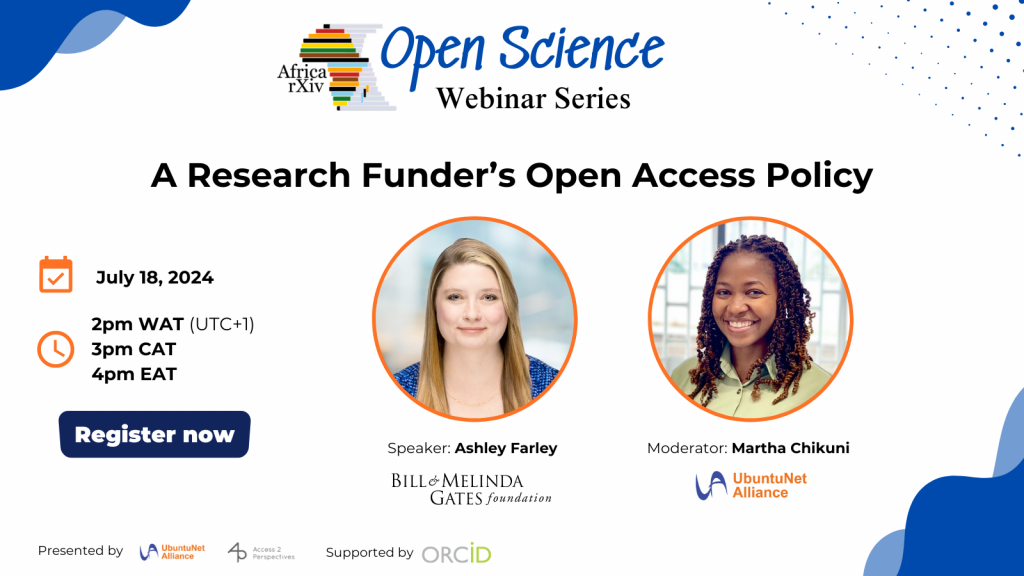On Thursday, July 18th, 2024, the UbuntuNet Alliance and Access 2 Perspectives hosted an enlightening webinar session as part of the ORCID Global Participation Program. This session focused on the Bill & Melinda Gates Foundation’s updated Open Access Policy, which will take effect on January 1, 2025. Guest Speaker Ashley Farley provided valuable insights into the foundation’s strategies and the expected impact of the updated OA policy. Her expertise highlighted the foundation’s dedication to fostering a more equitable and accessible research landscape.
Key Takeaways from the Webinar
1. Evolution of the Open Access Policy
Farley detailed the evolution of the foundation’s Open Access (OA) policy, starting from its inception in 2015 to the upcoming changes in 2025. The policy’s progression reflects a commitment to making research more accessible and equitable.
2. Unrestricted Access and Reuse
The updated policy ensures that all peer-reviewed research funded by the foundation will be available for unrestricted access and reuse. This move aims to enhance the dissemination and impact of research, particularly benefiting vulnerable populations worldwide.
3. Impact on Global Research
By implementing this policy, the Gates Foundation seeks to expand the reach and impact of critical research. The goal is to foster a more inclusive research environment that prioritizes accessibility and equity over traditional prestige and privilege in publishing.
4. The Importance of Preprints
A significant focus was placed on the role of preprints in accelerating research dissemination. Preprints allow researchers to share their findings rapidly, receive community feedback, and build upon each other’s work without the delays of traditional peer review processes.
5. Challenges and Future Directions
Despite significant progress, challenges remain in achieving full OA compliance. The foundation is addressing issues such as the high costs of article processing charges (APCs) and the slow adoption of new OA business models. The upcoming policy changes aim to dismantle these barriers and promote more equitable practices in scholarly publishing.
The webinar underscored the importance of open science and the transformative potential of making research freely accessible. If you missed the live session, you may watch the recording here.
As we look forward to the implementation of the Gates Foundation’s updated OA policy, we encourage the research community to engage with these developments and consider the broader implications for global research equity.
Stay tuned for more discussions in our ongoing Open Science Webinar Series. Register for upcoming sessions and stay informed about the latest updates here: Upcoming Webinars Registration.

